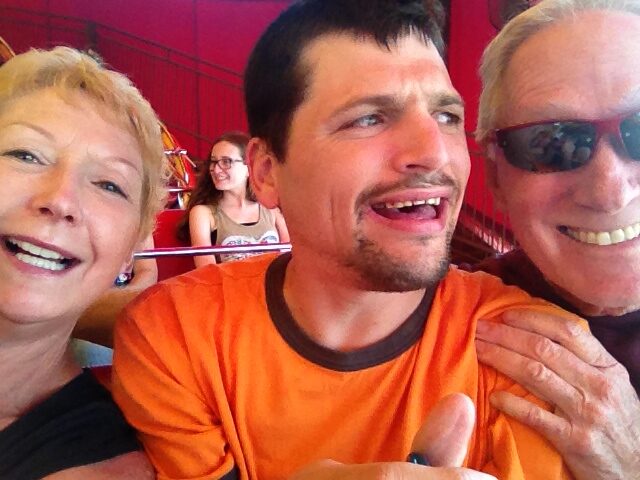By Pat Hornbecker
My son Joseph, 41 years old with Angelman Syndrome, lives in supported living in San Francisco. He requires 24/7 supports from a team of professionals.
I was not able to see my son for most of the last two years due to COVID-19 restrictions and limited access to vaccines. Joseph cannot wear a mask. The post-vaccine world has brought some security and risk as Joseph begins to venture out of the apartment where he has been isolated since the pandemic started. During isolation, Joseph lost a lot of mobility, gained weight, and is chronically depressed. He also had two trips to the emergency room that was traumatic for all of us. Joseph’s communication has been stunted, and we are witnessing a huge regression in skills and drive. This isolation has taken a toll on Joseph’s team as well because supported living services are delivered alone for many hours a day, day-in and day-out. We have lost staff because of the mental stress. Because I babysit my granddaughters and cared for my father (91) until his recent passing, I have not been able to join Joseph’s “bubble.”
Because he requires support around-the-clock, it’s very difficult to recruit, train, support and retain staff. It takes weeks of shadowing and instruction and experience to allow someone to fly solo and have them feel confident, or you feel confident in their abilities. A person requiring 24/7 care has a significant level of needs with detailed instructions for all daily activities. The smallest detail can be a life-or-death detail. Staffing shortages over the last two years have caused major burnout among the staff on Joseph’s team. And yet the staff persists, out of loyalty and care for my son! Their salaries are not enough, the supports for staff are not enough.
Where will we find new people to fill the staffing gaps with such underappreciative compensation?
Many family members have had to bring their loved ones back home, reduce their own employment and provide the staffing support themselves. For many reasons, this is not sustainable and causes significant hardship on the families.
It has been, and still is, the mission of The Arc of California to be a voice for families of children with developmental disabilities. The Arc team is working on behalf of families with the Legislature and Administration to develop solutions that will address the most pressing challenges facing the disability community, including staffing.

